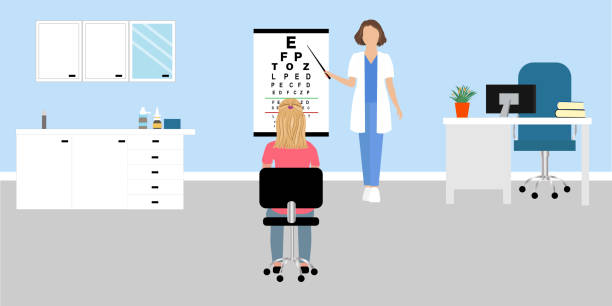Preventative care and maintenance are key to keeping things running smoothly—whether it’s your health, home, or car. Taking small steps now can help avoid big problems later. In this guide, we’ll explore why preventative care is important, how it applies to different areas of life, and simple steps you can take to stay ahead of issues.
What Is Preventative Care?
Preventative care means taking action before a problem happens. Instead of waiting for something to break down or fail, you take steps to keep it in good shape. This approach saves money, reduces stress, and extends the lifespan of whatever you are maintaining.
For example:
- Regular check-ups help prevent serious health problems.
- Routine home maintenance avoids costly repairs.
- Car servicing keeps your vehicle running longer.
- Updating software prevents security breaches.
By following a preventative care routine, you can enjoy peace of mind and fewer unexpected problems.

The Benefits of Preventative Care
1. Saves Money
Fixing problems early is much cheaper than dealing with major damage. A small leak in your home, for example, costs little to repair, but if ignored, it can lead to expensive water damage. Likewise, routine oil changes for a car are far more affordable than replacing an engine due to neglect.
2. Extends Lifespan
Taking care of things makes them last longer. Whether it’s your body, home, or car, regular maintenance prevents early wear and tear. A well-maintained home can last for generations, and a car that gets routine servicing can run for hundreds of thousands of miles.
3. Improves Safety
Many issues, like worn-out brakes in a car or faulty wiring at home, can be dangerous. Preventative care helps keep you and others safe. Regular dental cleanings, for example, can prevent infections that could affect your overall health.
4. Reduces Stress
Knowing that everything is in good condition lets you focus on other things. You won’t have to worry about unexpected breakdowns or emergencies. Instead of scrambling to fix a broken furnace in the winter, you can relax knowing it was serviced in the fall.

Preventative Care for Your Health
Your body is like a machine—it needs regular care to work well. Here are some key steps to keep yourself healthy:
- Get Regular Check-Ups: Doctors can catch early signs of illness before they become serious. Annual exams, vaccinations, and screenings help detect issues before they worsen.
- Eat a Balanced Diet: Nutritious foods keep your body strong and help prevent diseases like diabetes, heart disease, and obesity.
- Exercise Regularly: Staying active improves heart health, strengthens muscles, and boosts mood. Aim for at least 30 minutes of exercise most days of the week.
- Sleep Well: Rest is essential for energy, focus, and overall health. Poor sleep is linked to chronic illnesses like high blood pressure and depression.
- Manage Stress: High stress can lead to serious health problems, so practice relaxation techniques like deep breathing, yoga, or meditation.
- Practice Good Hygiene: Washing hands, brushing teeth, and showering regularly prevent infections and illnesses.
Taking these simple steps can prevent major health issues and help you live a longer, healthier life.
Preventative Home Maintenance
A well-maintained home is safer, more comfortable, and more valuable. Here are some home care tips:
- Check for Leaks: Inspect pipes, faucets, and the roof for any leaks to avoid water damage. Addressing a minor drip now can prevent costly repairs later.
- Clean Gutters: Clogged gutters can cause water to overflow and damage your home. Regular cleaning prevents foundation and siding issues.
- Test Smoke & Carbon Monoxide Detectors: Replace batteries regularly to ensure they work in emergencies. These devices save lives.
- Service Your HVAC System: Regularly change filters and have a professional check your heating and cooling system. This keeps air quality high and energy costs low.
- Inspect Your Roof: Look for missing shingles or damage that could cause leaks. A well-maintained roof prevents costly water damage and mold growth.
- Seal Windows & Doors: Check for drafts and apply weather stripping to save on heating and cooling costs.
By keeping up with these tasks, you can prevent costly repairs and keep your home in top condition.

Preventative Car Maintenance
A well-maintained car runs better, lasts longer, and is safer to drive. Here are some essential car care tips:
- Check Oil & Fluids: Regular oil changes keep your engine running smoothly. Also, check brake fluid, coolant, and transmission fluid.
- Inspect Tires: Proper tire pressure and tread depth improve safety and fuel efficiency. Rotate tires every 5,000–7,500 miles to promote even wear.
- Replace Air Filters: Clean filters help the engine breathe better and improve fuel economy.
- Check Brakes: Listen for squeaking or grinding sounds, which may indicate worn-out brake pads. Address brake issues immediately to avoid accidents.
- Follow the Manufacturer’s Maintenance Schedule: Each car has a recommended maintenance plan—stick to it to avoid breakdowns.
- Wash & Wax Your Car: Keeping your car clean prevents rust and paint damage, especially in winter when road salt is common.
With regular upkeep, your car will be more reliable and last for many years.
Preventative Digital Maintenance
In today’s world, digital devices also need preventative care. Here’s how to keep your technology running smoothly:
- Back Up Important Data: Store files in the cloud or on an external hard drive to prevent loss.
- Update Software: Keeping apps and systems up to date helps protect against security threats. Outdated software is a common way for hackers to gain access to personal information.
- Run Antivirus Scans: Regularly scan your devices to prevent malware and hacking. Cybersecurity threats can cause identity theft and financial loss.
- Organize Digital Files: Delete old files and emails to keep your devices running fast. A clutter-free digital space makes work and personal tasks easier.
- Use Strong Passwords: Change passwords regularly and use two-factor authentication for added security.
Taking care of your technology ensures it stays secure and functions well.
Creating a Preventative Care Routine
Now that you know the importance of preventative care, it’s time to create a maintenance plan. Here’s how:
- Make a Checklist – Write down all tasks needed for health, home, car, and digital devices.
- Set Reminders – Use a calendar or app to remind you of upcoming maintenance tasks.
- Stay Consistent – Follow through with your routine to keep everything in top shape.
- Schedule Professional Help – Some tasks require expert assistance, like HVAC servicing or dental check-ups.
With a little planning, preventative care becomes a simple habit that saves time, money, and stress.
Final Thoughts
Preventative care and maintenance are all about staying ahead of problems before they become costly or dangerous. Whether it’s your health, home, car, or digital life, regular maintenance keeps everything running smoothly. By following the tips in this guide, you can enjoy a safer, healthier, and more stress-free life. Start your preventative care routine today and reap the benefits for years to come!

